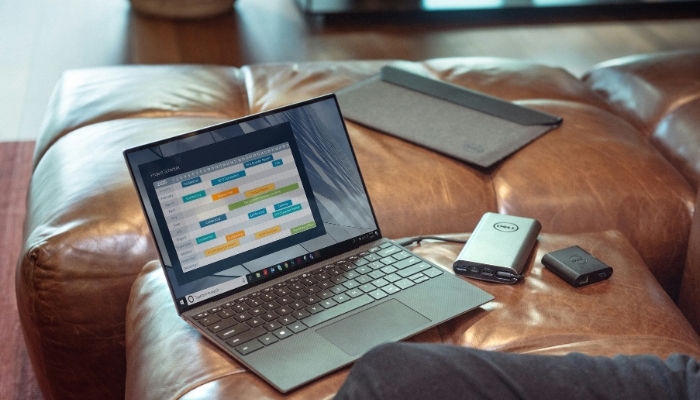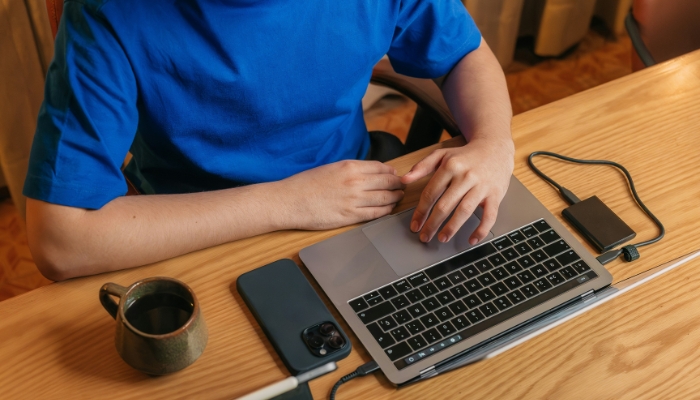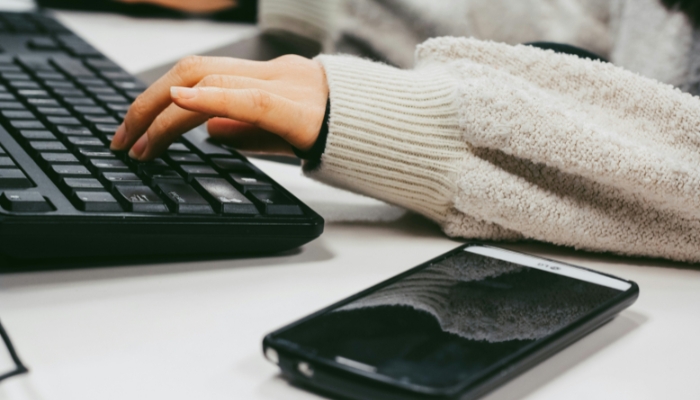
In today’s technologically advanced era, the question of whether phone numbers are traceable has become increasingly pertinent. This discussion will explore the technical processes that enable phone tracing, who possesses the capability to trace numbers, the legal implications involved, and its impact on personal privacy.
Our website’s reverse phone lookup service effectively traces phone numbers, offering users access to extensive databases for identity verification and caller information, ensuring user privacy and ease of use in determining the traceability of phone numbers.
As we move forward, we will also consider ways to protect oneself from potential tracing. This subject is not only relevant but also essential to understand in the context of our increasingly interconnected world. Stay tuned as we dive deeper into this riveting topic.
Understanding Phone Number Tracing
To comprehend phone number tracing, one must first understand its basic premise: the process of identifying the origin of a call or message received. This process operates on the foundation that every phone number is unique and tied to a specific point of origin, be it a city, state, or country.
Phone number companies, like service providers, maintain databases and have capabilities such as track phone number via IP, allowing them to trace back phone calls to the exact location. They can trace back phone calls to the exact location, often even pinpointing the specific device used. This is possible because each phone number service assigns a unique identifier, akin to an IP address, to each phone call made.
However, the actual tracing process is not as simplistic as it sounds. It involves complex data retrieval and analysis, often requiring cooperation from the phone provider. The phone provider’s role is integral in tracing phone calls, as they maintain the most accurate and up-to-date information regarding their customers. They can provide valuable insights into the whereabouts of the device used and the identity of the user, aiding in successful phone number tracing.
The Technology Behind Tracing
Unraveling the intricacies of phone tracing reveals an amalgamation of sophisticated technologies working in harmony. The process is a complex one, involving multiple entities such as mobile phones, phone companies, and location tracking services, all of which rely on a multitude of technologies to trace a phone number.
Key elements in the process include:
- Caller ID: This technology allows the receiver to see the caller’s phone number, which can be traced back to the owner.
- GPS: Mobile phones and some cell phones have built-in GPS, which can provide precise location data.
- Cell Tower Triangulation: Phone companies use this method to pinpoint a phone’s location based on the strength of its signal to nearby cell towers.
- Phone Number Apps: These apps can provide additional information about a number, including its registered location and owner.
- Data Brokers: These entities collect, analyze, and sell data, often sourced from public records and online activity, to help trace phone numbers.
While the technology behind tracing is complex and multifaceted, it primarily revolves around the collaboration of different technologies and entities, working together to trace a phone number to its origin or location.
Who Can Trace Phone Numbers?
Almost anyone, from private individuals to law enforcement agencies, can trace phone numbers under specific circumstances and with the right tools. This process involves tracking the phone number routes to identify the origin or destination of a call.
In the case of a trackable phone, the cellular carrier plays a crucial role. Cellular carriers maintain detailed customer records, including call logs and location data, which can be invaluable for tracing phone numbers. These records can pinpoint the location of a device when a call is made, providing an effective way to trace a phone number.
Government agencies too have the resources and legal authority to trace phone numbers. They often work in collaboration with cellular carriers and can access more detailed information. For instance, they can determine the precise geographic location of a phone at the time of a call.
How Our Website Can Help with Tracing Phone Numbers?

Our website offers a reverse phone lookup service, a powerful tool that can be used to trace phone numbers. This feature is particularly useful in determining the identity and location of callers, making it a valuable resource for those looking to find out if phone numbers are traceable.
Key Features of Our Reverse Phone Lookup Service:
- Identity Verification: By entering a phone number, our service can provide valuable information about the caller’s identity. This is especially helpful in verifying the legitimacy of unknown or suspicious calls.
- Access to Extensive Databases: Our platform searches through extensive databases to retrieve relevant information, including details on the phone number’s owner, their location, and potentially their criminal history or other personal information.
- User Privacy and Confidentiality: We ensure that searches are conducted anonymously, protecting user privacy and preventing unwanted calls or messages. Additionally, we maintain the confidentiality of data, ensuring that customer information remains secure.
- Ease of Use and Compatibility: Our user-friendly interface allows for easy navigation and quick access to results, compatible with multiple devices and platforms.
Phone numbers are indeed traceable, and our reverse phone lookup service provides a straightforward and efficient way to uncover information about unknown callers. Whether for personal safety, fraud prevention, or curiosity, our tools offer reliable solutions for tracing phone numbers and verifying caller identities.
Legal Implications of Phone Tracing
While the ability to trace phone numbers can be a useful tool, it’s important to understand the legal implications associated with such actions. Phone tracing, when not done properly, can infringe on citizen privacy rights, violating privacy policies and potentially leading to legal consequences.
The legal aspect of phone tracing, including methods to trace phone number via email, revolves around several factors:
- Phone Services: Providers maintain phone logs as part of their service, but they are not legally allowed to share this information without consent or a lawful order.
- Privacy Policies: These policies dictate what information a service provider can share and under what conditions. Breaching these policies can have legal implications.
- Citizen Privacy: The law protects individuals from unwanted intrusions into their private lives. Unlawfully tracing a phone number infringes on this right.
- Phone Logs: Accessing someone’s phone logs without their permission or a legal warrant is a violation of privacy laws.
- Location Permissions: Without explicit permission, using a phone’s location for tracing purposes is legally contentious.
Impacts on Personal Privacy

Despite the potential benefits of phone tracing, its impact on personal privacy cannot be overlooked. The ability to trace a personal phone poses significant privacy concerns as it may lead to unwarranted surveillance and intrusion into one’s private life.
Phone security plays an integral role in maintaining privacy. However, with phone numbers being traceable, the risk of security breaches increases. This could potentially lead to misuse of personal information, causing distress to the individual involved.
Moreover, app privacy policies often allow for the collection of phone data, including call logs and location. Such practices, while permissible under current privacy laws, raise ethical questions about the extent to which personal privacy should be compromised for the sake of data collection.
Privacy laws, designed to protect personal information, may not be sufficient to protect against the potential abuse of phone tracing. The existing laws often fail to keep pace with technological advancements, leaving gaps in the protection of personal privacy.
Protecting Yourself From Tracing
In the digital age, it has become increasingly crucial to implement measures aimed at protecting oneself from phone tracing. Unwanted tracing could lead to privacy violations and potential security threats. Hence, to maintain privacy and ensure security, one must consider various options.
- Using an untraceable phone is a reliable option as it effectively hides your identity and location.
- Opting for a burner phone, a disposable device that can be discarded after use, provides an extra layer of security.
- Disposable phones, similar to burner phones, can also be used to maintain anonymity.
- Considering anonymous phone companies is another effective strategy. These companies provide services that protect user’s identity, making tracing difficult.
- Lastly, a powerful cybersecurity solution can safeguard against potential threats. Cybersecurity software can detect and block tracing attempts, ensuring your privacy remains intact.
Adopting these measures can help protect from unwanted tracing. However, it’s important to use these tools responsibly, remembering that they are designed to protect privacy, not facilitate illicit activities. In the era of digital connectivity, maintaining our privacy should be a priority.
Common Tracing Scenarios

Common tracing scenarios, often involving law enforcement or business operations, illustrate how phone numbers can be tracked to reveal user information. For instance, when a real phone number is used to register on most websites, it leaves a digital footprint that can be traced if required. This process involves mapping the phone number to the IP addresses used during the registration process. Thereby revealing the user’s approximate location.
In business operations, customer service centers often trace phone numbers to provide tailored services based on the caller’s location. Similarly, courier services use phone number tracing to get the exact location for deliveries. In law enforcement, phone tracing becomes even more critical. For instance, in cases of harassment or threat, authorities trace the culprit’s phone number to find their exact location and apprehend them.
However, it is important to note that not all phone tracing scenarios lead to an exact location. Sometimes, due to factors like IP spoofing or the use of virtual private networks (VPNs), only an approximate location can be determined. This makes phone number tracing a useful, yet not always foolproof, tool for determining user information.
Future of Phone Number Tracing
Looking towards the horizon of technological advancements, phone number tracing is expected to evolve. Potentially becoming more accurate and versatile in its applications. The future trajectory of this technology will heavily rely on the synergy between service providers, mobile device manufacturers, and regulatory bodies to tackle challenges such as tracing fake phone numbers and unmasking the original carrier.
In light of the above, below are some anticipated developments in phone number tracing:
- Improved collaboration between service providers and device manufacturers to implement advanced tracing features.
- Development of more sophisticated algorithms to accurately trace the original carrier of a phone number. Thus reducing the chances of misleading or inaccurate results.
- Enhanced security features on mobile devices to prevent misuse of phone number tracing capabilities.
- Technological advancements to counter fake phone numbers and unbreakable encryption methods that obstruct tracing.
- Regulatory changes to ensure the ethical use of phone number tracing, balancing the need for security and privacy.
As we move forward, it is crucial to mitigate potential misuse while maximizing the benefits of phone number tracing. The ideal future will be one where phone number tracing is a tool for security and accountability, used responsibly and ethically.
Conclusion
Tracing phone numbers is a reality shaped by technological advancement and regulatory frameworks. While it poses significant privacy concerns, it serves essential purposes in law enforcement and emergency scenarios.
It is vital for individuals to understand the dynamics of phone tracing, potential legal implications, and measures to protect their privacy.
As technology evolves, the trajectory of phone number tracing will continue to impact society, necessitating constant vigilance and awareness.
Faqs
Can Anyone Trace My Phone Number?
Yes, it’s possible for someone to trace your phone number. If you make a call or send a message, companies like your phone service provider can track the number. They use technology to pinpoint where calls come from. Also, if you use apps or services that need your number, they might track it too. But remember, there are laws that protect your privacy. So not just anyone can trace your number without a good reason.
How Do Police Trace Phone Numbers?
Police trace phone numbers by working with phone companies. When they need to find where a phone number is, they ask the phone company for help. The company uses special technology to find out where the phone is. This can be through GPS, which is like the maps on your phone, or by seeing which cell phone towers the phone is using. But, the police need to follow strict rules and usually need permission from a judge to do this.
Can I Find Out Who Called Me from an Unknown Number?
Yes, you can sometimes find out who called from an unknown number. There are services online called reverse phone lookup. You enter the phone number, and the service tries to tell you who it belongs to. Some of these services are free, and some you have to pay for. But remember, they might not always work, especially if the number is really private or from a different country.
Is My Phone Number Safe from Hackers?
Your phone number can be pretty safe, but you need to be careful. Hackers can sometimes use your number to try to get into your accounts or trick you into giving them personal information. To keep your number safe, don’t give it out to people or websites you don’t trust. Also, use different passwords for your accounts and maybe even two-step verification. Which is like a double lock for your online accounts. If you ever think a hacker has your number, tell your phone company right away.